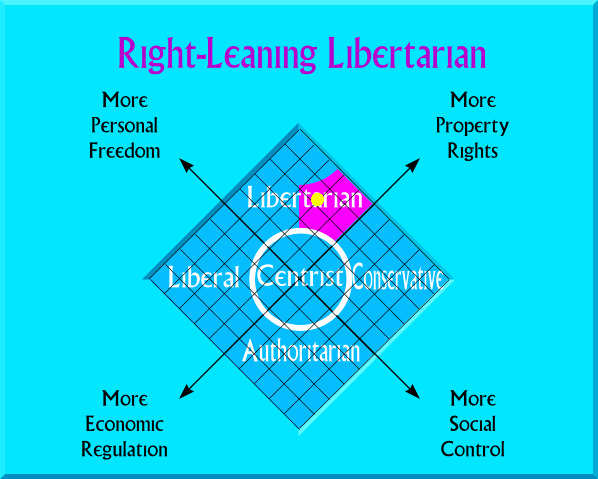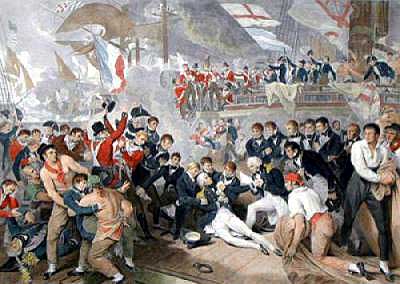Whereupon We Write About the Confederate Flag & Free Speech.
Greetings, loyal minions. Your Maximum Leader, for this update, will drop his familiar 3rd person narrative in favor of the more traditional 1st person blogger voice. So… Be prepared.
I write today about the vapors gripping our nation. We are all caught in a collective fit of apoplexy that is fracturing our already fractured nation. Of course, I’m speaking about the controversy over the Confederate Flag. Not the first Confederate national flag, but the Confederate Battle flag.
Let me get a few items out of the way first. I was born in Virginia. I love my native state. I love Virginia as much – and perhaps more – than the next guy. But, (as they say in the South) my people were not from the south. My people came to Virginia after WWII. They were from Ohio and Pennsylvania mostly. I am unaware of any relatives who fought in the US Civil War for the Confederacy. I am sure that if I bothered to look, I’d find some. But the relatives known to me who fought, fought for the USA. If my family history disqualifies me in your mind from reading further, great. Leave. Please don’t return. You are part of the problem here.
Having established a little bit of my background let me go further. When I was young, I was more interested in the Civil War than I am now. I was most interested in the Civil War from age 10 – 14. During those years I visited battlefields and read books on the war. I had respect for Robert E. Lee. I viewed him as a tragic figure. He was torn between his love of Virginia and his love of the United States. Ultimately, his state won out. And though he fought on the losing side, he was a good man. So I thought. This was due in large part to the hagiography that surrounds him. For a young kid who wasn’t thinking critically, what is not to like about this image of Robert E. Lee? He was from a good family. He was exceptional at West Point. He loved his wife and family. He served his nation. Then when faced with a tough situation he made a bad call, but still served honorably. Upon being defeated he did what he could to foster peace and reconciliation and lived out his life as a teacher.
That was all fine and good for a boy, but as I grew my views on Robert E. Lee and the Civil War changed. The first thing that no rational, informed and educated person can get past is slavery. The war was about slavery. There is no way around it. States’ Rights? You mean the right of the States to preserve slavery. Protecting your homes from invaders? They invaded because you started a war in order to preserve slavery. “My ancestors didn’t own slaves†they fought to protect themselves how about that? They fought to protect themselves, and to protect the people who wanted to preserve slavery. Every single argument about the cause of the Civil War boils down to slavery. That is it. Stick a fork in it. It’s done. It’s been done for 150 years. It is all slavery.
What about Robert E. Lee you ask? Well… As I grew up I realized that no matter how you cut it, the Civil War is about slavery. Robert E. Lee broke an oath he swore to his nation (the United States of America) when he accepted his commission in the army. After breaking that oath he did not stay at Arlington House and hope for the best (which I would consider somewhat honorable). He decided to take up arms against his former nation (the one he’d sworn to protect with this life) and fight to preserve a nation based on the institution of slavery. Ultimately, I can’t support that.
I have found myself admiring another Virginian of the time. George Henry Thomas. He was born and raised in Virginia. His family had deep roots in the Commonwealth. He went to West Point, he received his commission. He fought for the United States of America. When secession came he was offered the position of Chief of Ordinance in Virginia – and likely would have been a senior flag officer in the Confederate army. But, he realized he’d taken a vow to support, protect, and defend the United States of America. He stayed loyal to the nation and was disowned and disavowed by his family. (NB: So strong was the approbation in which his sisters held him that they refused a wagon full of supplies sent to them after Lee’s surrender from a Union officer on behalf of their brother stating that their brother was dead and they had no need of supplies from strangers.) Thomas was one of the most outstanding generals in the Union army, and, to this day, one of the least appreciated and least admired. He’s the Civil War era Virginian I admire. (NB: George Henry Thomas’ 199th birthday is coming up. It is Friday, July 31. Raise a glass to him. I will be.)
The strangest thing happened after the Civil War though. It was the losers who somehow seemed to win the public relations battle in the South. The losers wrote history after history and biography after biography and memoir after memoir all promoting the whole “moonlight and magnolia†view of the “Old South†and its “Lost Cause.†They whitewashed the reasons for war and promoted a romanticized view of life before the war. Consequently, generations of Americans grew up thinking that the South was full of huge plantations. On those plantations they had huge dances weekly and lived a genteel life. All the while the plantation owners were supporting their noble slaves who were happy in their place and well treated. Of course this isn’t real history. Before anyone objects, sure there might have been outliers in the South for which my description is, in part, accurate. But for every one “good†master there were many more James Henry Hammonds. (Google him if you don’t get the reference.) And frankly the big plantations were less common than one would think. Most farmers were small freeholders with zero or one slave. And regardless of how many slaves a person owned, the problem with the whole equation is that there is still a slave in the equation. No matter how benevolently one treats a slave, the person is still enslaved. Teach a slave to read, and the slave is still a slave. Work beside them in the field and share meals with them, the slave is still a slave. There is no getting around it.
So… We have a Civil War that is about slavery. We have a bitterly divided nation. We have the losers writing their side of the story. And we have the loser’s side winning the PR battle. (NB: I should be specific. The losing side wins the PR battle among white people after the war. I don’t want anyone to think that they won the PR war in the community of people they fought to keep enslaved.)
After the war the winners and the losers start to memorialize the war. Hardly a county seat or city hall in all the land didn’t have a statue or monument close-at-hand that didn’t commemorate the men of that locality that fought in the Civil War. They are all over the South. Frankly, they are all over the North too. (NB: In a funny historical turn, companies made good money on those monuments. If you study them closely you will see “standard model†solider statues all over.)
Not only are there monuments, but if you live in Virginia (as I do) there are cemeteries. There are “Confederate†cemeteries and there are “Federal†cemeteries. They are divided up just as you would gather from the names. Confederate soldiers buried in the one and Union soldiers buried in the other. They are separated forever in death as they were at their last moment.
So life goes on for about 90 years or so from the end of the war…
During those 90 years there starts to be a transformation of views among many white Southerners. That transformation is that all those ancestors that fought for the South were good and noble men who fought for a noble but losing cause and they weren’t all that bad anyway. Let me say this strongly and clearly now. Your ancestor that fought for the Confederacy wasn’t necessarily a bad or evil person; but they were wrong. They fought for a wrong cause – whatever their motivation. They lost, and they should have lost. (In fact there is inevitability to their loss.) It is hard to accept that an ancestor might have fought and died, or fought and suffered, for a bad cause. But they did. It is hard to keep in one’s mind the dual belief that one’s ancestors were good people despite fighting for a bad cause. It is easier to make an excuse for them. But the facts don’t support the excuse. It is hard to live with unpleasant truth, but sometimes living with unpleasant truth is all there is to live with.
So nearly 100 years after the Civil War what happens? We get the Civil Rights movement. And that is where our modern problems about the Confederate Battle flag start to come to the fore. That is when people who objected to the Civil Rights movement started flying the Confederate Battle flag everywhere they could. All those monuments I wrote about a moment ago, they got flags. State houses in the South got flags. Some states even put the Confederate Battle flag in their state flag. It was done to protest Civil Rights. Those flags weren’t there prior to the Civil Rights movement. They appeared because of the Civil Rights movement. The people responsible for this said it was all about “heritage, not hate†and that no one should take offence. But the timing makes the move rather transparent.
I do not doubt (or perhaps I don’t want to doubt) that today, in 2015, many people honestly believe that the Confederate Battle flag isn’t a symbol that at its core represents a fight to preserve slavery. But that belief is not supported by facts. The Confederate Battle flag stands for the Confederate States of America and the CSA was founded, built, fought, and perished over the issue of slavery. You can’t get around it. You shouldn’t get around it. It is what it is.
(NB: I don’t want to diminish the genuine suffering that everyone in the South experienced after the Civil War. Particularly in Virginia. I know, personally, many people who can cite the deprivation their ancestors were subjected to after the war. Where armies moved in Virginia the land was denuded. I know this because in my own home of Stafford County, VA there is hardly a tree in the whole county that is more than 150 years old. Why? Because every tree for miles around was cut down by one army or the other to build camps and to keep fires going. Farms were destroyed, livestock taken, and life made awful. It all happened. But, none of this changes the basic fact that the war was about slavery and that suffering after the war doesn’t give one the right to selectively create the history of the era.)
Now we come to 2015 and after a terrible mass-murder in Charleston, South Carolina we are met with a fit of national apoplexy over the Confederate Battle flag…
Let me just come out and state where I stand on this. The Confederate Battle flag should not be flown over public buildings or monuments, excepting Civil War battlefields, Civil War cemeteries or other places where the flag fits in a Civil War era appropriate historical situation. What does this mean practically? That flag shouldn’t fly over the Grand Canyon National Park. It can be flown over the Gettysburg National Battlefield. It shouldn’t fly over the South Carolina statehouse or anywhere on the grounds of the South Carolina statehouse (even near a monument to Civil War dead on the grounds of the statehouse). It can be flown over the “White House of the Confederacy†in Richmond, VA. It shouldn’t be flown over a National Cemetery with the dead of many different US wars. It can be flown over a Confederate cemetery that dates to the time of the Civil War. I do not object to small Confederate Battle flags being displayed on the individual graves of soldiers who fought and died under the Confederate States of America even if they are buried in a National Cemetery with the dead of many wars. (If the grave in question were the grave of a veteran of the CSA who died after the war I’ll grant you it is a hazy area where my inclination is to forego the Confederate Battle flag in favor of a US flag – as the veteran died as a citizen of the United States of America.)
Let me go a step further. Should those monuments I keep writing about come down or be moved. No. Absolutely not. They are sacrosanct. I don’t care if they have the battle flag displayed in stone, or bronze or whatever medium that is part and parcel of the monument itself. I don’t favor adding a flag – or maintaining a flag as part of that monument. Should we take down signs announcing that a particular burying ground is a “Confederate†cemetery? No. Should we dig up the remains of Confederate soldiers and move them to remote places where they are out-of-site? No.
Then we start to get into the more hazy areas concerning the Confederate Battle flag. Should retailers not sell the flag? That is entirely up to the retailer. If they don’t want to, don’t. If they do, by all means proceed. Should NASCAR ban the flying of the Confederate Battle flag at their events? They could. Frankly, that is, like retailers, up to them. I don’t care much one way or the other. Should states (like Virginia) ban the flag on commemorative automobile license plates? As I understand it, the license plate is actually property of the state (even though you, the car owner, pays for it). Thus, the license plate, like the grounds of a statehouse, the flag should go. Should the United States Congress start removing statues of Civil War era figures or Confederate imagery from the Capitol building? No, I don’t think so.**
**Excursion here: There is the matter of Statuary Hall in the US Capitol building. It is my understanding that each state of the Union is invited to donate two statues to be displayed there. It is the choice of each state which native son/s or daughter/s are to be displayed. Virginia has chosen to send only one statue – that of Robert E. Lee. Mississippi sent Jefferson Davis and James Zachariah George. Georgia sent Alexander H.H. Stevens. These are, in my opinion, poor choices. But rather than Speaker Boehner or a Committee of the House of Representatives telling the states to choose others, I’d prefer to see the states discuss swapping them out for others. If the states choose not to… That is okay by me. But let’s have a civil discussion of the matter.
Then we get into another area where flying the Confederate Battle flag isn’t a matter of question to me. That is the flying, or other display of the flag, on private property by normal citizens. If you want to fly a Confederate Battle flag, by all means fly it. If you want to paint it on your house, please do so. If you want it on your car or truck, display away. Frankly, I would take the same position if you wanted to fly a British flag, Canadian flag, French flag, Russian flag, Daesh flag, Nazi flag, butterfly flag, University of Alabama flag, UVA flag, “Happy Spring!†flag, or any other flag. Fly away. That is your right. (NB: My house currently has the Bennington flag displayed outside. I happen to like this flag a lot. It is one of my favorite of all of the historical flags of the US. I also have a Royal Standard of Scotland that I’ve flown from time to time. I also have a modern US flag that I fly often.)
You know what isn’t your right? It isn’t your right to say to another citizen that they can’t fly the flag on their land because it upsets you or gives you the vapors or makes you feel funny in the tummy. If the site of a flag causes your bowels to churn and your vision go blurry – you need to put away the pacifier, put on some grown-up clothes and get a life.
Because we’ve reached a point in US society that things have to be spelled out clearly because people are whiney about their feelings here is me spelling it out. The Confederate Battle flag can (and often should) be construed to support the Confederate States of America – a political entity that no longer exists and was founded to support and further slavery. The flag is appropriately displayed on public lands where it fits a specific historical context. Outside of this specific historical context, the flag should not be displayed on public lands or buildings. There cannot, and should not be, a prohibition on its display by private individuals on private land or vehicles.
To illustrate this point… A few miles away from me, another citizen of Stafford County has displayed a Confederate Battle flag. Not just a regular one. A big one. A very VERY big one. The flag is on a 90 feet tall pole. The flag itself is 22 feet high and 30 feet long.*** The flag pole is located right off Interstate 95 and is visible to everyone driving by in both directions. (Though it is more visible for a longer period on the northbound side.) Don’t believe me? Here it is this morning in a photo taken from my car.

Does this huge flag bother me? Yes, it does. I think it gives visitors and passers-by the wrong impression of my locality. But should the flag be taken down because it is offensive? No it shouldn’t. As much as it might upset me being there, it is the property owner’s right to fly it there (since it is flown with all the legal permits for a display that size). Just because people are offended doesn’t give those offended people the right to command him to remove the flag. This is, for me – and should be for you too I think – a free speech issue.
Free speech is coming to the point where it is an all or nothing proposition in this nation. Nothing has infuriated me recently as much as my fellow Americans getting gamy-handed and weak-willed on free speech. Take for example, Muslims try to kill people outside Dallas because of a draw the Prophet Mohammed cartoon contest – gotta be the fault of the people putting on the contest right? They were asking for it, right? WRONG AND WRONG AGAIN! It is the fault of the ignorant sacks of shit that were trying to kill the people at the cartoon event. Another example, opinionated people whose opinions differ from those of “mainstream†liberalism at college campuses being “disinvited†to speak (after invitations were offered) because students and/or faculty disagree with the views of the speaker. (NB: I am writing specifically here about Ayaan Hirsi Ali. Her case is tragically emblematic of this trend around the United States.) I am embarrassed to have to write how wrong this is. But here it goes anyway. If listening to someone express views that differ from your own, even if you find them deeply offensive, fill you with outrage to a degree that you are unable to function or carry on, then you are a mentally weak and I’d prefer you be disfranchised quickly because you obviously don’t have the wherewithal to participate in a democratic republic.
If a person with controversial views cannot speak on a college campus in the United States of America about their views, we are good and truly doomed as a republic. When students are so mentally frail that they have to censor people who dare to differ from them in the greatest (or least) way, those students do not deserve to be graduated or get a diploma.
When I wrote a few lines ago that free speech is an all or nothing proposition, I mean it is coming to that. I think that reasonable people can agree on limitations on free speech in a civil society. The clearest example of this is the proverbial “to yell ‘fire’ in a crowded theatre†prohibition because of the possible public safety issue. I think we can agree that libel can be prohibited – because it is, by definition, telling a falsehood. But beyond immediate public safety or telling lies, limiting free speech is a very dangerous idea. Especially when you are trying to limit free speech on the basis of your “feelings.â€Â
I am sorry that many black people feel oppressed, insulted, or sick to their stomachs when they see a Confederate Battle flag. I am offended as well. But neither of our feelings should trump the right of the person flying the flag to fly the flag. If a person wants to be offensive, that is their right. Once we start using peoples “feelings†as the arbiter of what speech is acceptable and what speech isn’t we are in a pretty dark and bitter place. Big Brother is, in that case, only a few steps and perhaps a stumble away.
In this whole flag debate, and in the debates about speech on college campuses many seem to want the “right†to be free from offence or outrage. That isn’t a right. It never has been and never should be. I am, frankly, completely outraged that someone, ANYONE, is tempted to limit the speech of others on the grounds that someone (even me) might be offended. I am perfectly capable of determining what offends me and what outrages me. When I hear it I’ll react accordingly. But when you try to say, “You can’t listen to so-and-so speak because their ideas are offensive†my heckles go up and I would like to defenestrate you from a tall building.
(NB: I wonder if this little epistle of mine needs its own trigger warning because of my use of hyperbole in threatening people with defenestration and denial of college degrees. By the way, the very concept of a “trigger warning” makes me think people who need them are so infantile that I want to make them wear some sort of modern scarlet letter so that I can give them a wide berth.)
Basically, this whole Confederate Battle flag thing has brought out the worst in over-reaction and hysteria when it comes to free speech. Sadly, very few people of the left appear to be concerned over this broader issue. Just as sad is that many on the right as just as content as their leftist friends to over-react. No one seems to be out there saying “Okay, the flag at the South Carolina Statehouse is wrong, but there has got to be a limit to all this.†I suppose if falls to erstwhile bloggers to stand up and say stop.
Carry on.
***Just a little pet peeve of mine that has gone unwritten to this point, but I feel I have to get off my chest. The Confederate Battle flag is a square – not a rectangle. The flag is equally high as it is wide. All these Confederate Battle flags that are longer than they are tall annoy me on principle.
UPDATE ON 7/15/15: A friend of your Maximum Leader pointed out to me yesterday night that the Confederate Naval Jack (which is the same design as the Confederate Battle flag) is actually longer than it is tall. Thus he believes that the flag that everyone seems to be displaying all over is actually a replica of the Confederate Naval Jack. While I think this is a bit of a stretch, I’ll go with it… For now at least…










